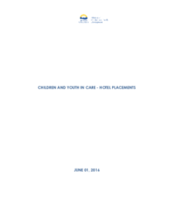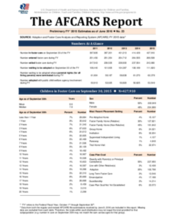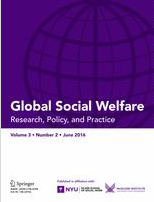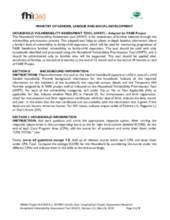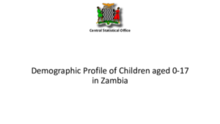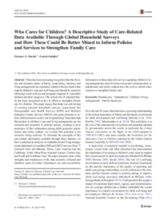Displaying 221 - 230 of 565
This document is an adapted presentation created by Florence Martin of Better Care Network and Katie Rice of Save the Children UK describing the Tracking Progress Initiative.
The CPC Learning Network held its biennial meeting, Evolving Methods for an Expanding Field: Global Research with Children and Families in Adversity, on 21 and 22 June 2016. The meeting aimed at presenting innovative research on international child protection and family welfare and identifying key knowledge gaps and ways to collaborate to fill those gaps.
This special report from the Ministry of Children and Family Development in British Columbia, Canada presents findings on the number of children in care in the province who were sent to stay in hotels.
This report provides preliminary estimates of U.S. Adoption and Foster Care Analysis and Reporting System (AFCARS) data for Fiscal Year 2015.
This special issue of the Journal of Global Social Welfare grew out of a 2014 symposium co-hosted by the Better Care Network and the
The Household Vulnerability Assessment tool (HVAT) is for assessment of families selected through the vulnerability prioritization process. This adapted tool helps to obtain in-depth baseline information about a family’s level of vulnerability to family-child separation, which will be used for monitoring progression of FARE beneficiary families’ vulnerability to family-child separation.
This presentation from Zambia's Central Statistical Office, given at the Zambia National Consultation to Accelerate Care Reform, provides data on children in Zambia, including the legal definition of a child, how many are living in Zambia, where they live, and their living arrangements.
This paper offers an analysis on orphanhood and living arrangements data based on available DHS and MICS surveys from 77 countries from sub-Saharan Africa, Latin America and the Caribbean, North Africa/West Asia/and Europe, Central Asia, and South and Southeast Asia.
This editorial piece from the Journal of Global Social Welfare introduces the journal's special issue on measuring children’s care arrangements.
Given the importance of children’s care arrangements for their development, this essay summarizes efforts to measure trends in children’s care arrangements in two regions of the world—Southeast Asia and sub-Saharan Africa.

